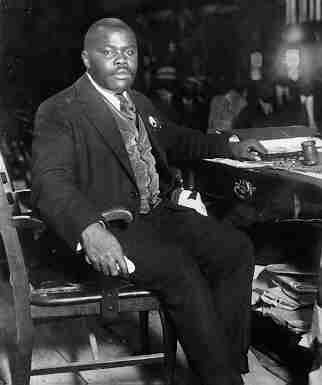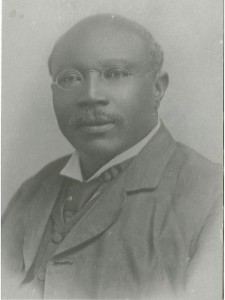In the meantime, he was engaging in other self-enriching activities. Marcus Garvey was becoming quite the orator. He took elocution lessons from Dr. J. Robert Love, Jamaica’s leading politician at the time, and studied the way ministers spoke in church.
“Joseph Robert Love, known as Dr. Robert Love, was a nineteenth-century Bahamian-born medical physician, clergyman, teacher, journalist, and an outstanding political figure. He lived, studied, and worked successively in the Bahamas, the United States, Haiti, and Jamaica. Love spent the last decades of his life in Jamaica, where he held political office, published a newspaper, and advocated for the island’s Black majority. His newspaper, the Jamaica Advocate (1894-1905) inspired Marcus Garvey at an early age. Later in life, Garvey was to recall, “Much of my early education in race consciousness is from Dr. Love. One cannot read his Jamaica Advocate without getting race consciousness. If Dr. Love was alive and in robust health, you would not be attacking me, you would be attacking him.” Love was born in the Bahamas before going to work as a teacher in Florida, where he became a clergyman in the Episcopalian Church. He also studied medicine and obtained a medical degree at the University of Buffalo in New York. He subsequently moved to Haiti, where he served as the rector of an Anglican church in Port-au-Prince and held a high post in the country’s medical department. Love was an admirer of Toussaint Louverture, one of Haiti’s famous founding fathers. After 10 years in Haiti, Love moved to Jamaica in 1889. There he started the Jamaica Advocate, which became an influential newspaper on the island. Love used the paper as a forum to express his concern for the living conditions of Jamaica’s Black population. He was a staunch advocate of access to education for the majority of the population. He believed that girls, like boys, should receive secondary school education. In 1906, Love won the St. Andrew Parish seat in Jamaica’s general elections. He also served as chairman of the St. Andrew Parochial Board, as well as a Justice of the Peace in Kingston, the Kingston General Commissions, and as a Wolmer’s trustee. Love published two works, Romanism is Not Christianity (1892), and St. Peter’s True Position in the Church, Clearly Traced in the Bible (1897). In 1906 Love’s health began to deteriorate, and by 1910 he had been forced to end his political career. He died on November 21, 1914, and was buried in the parish churchyard at Half Way Tree, near the city of Kingston. Love’s activism in favor of Jamaica’s economically depressed Black majority influenced later Jamaican and Caribbean activists. It is believed that Love’s Jamaica Advocate influenced Garvey’s own string of newspapers.”He put those skills to the test in a nationwide speaking contest, but only came in third thanks to a heckler in the crowd. Still, no one could deny he had a gift when it came to oration. He also began to dabble in journalism. He worked on two newspapers and began to publish his own, titled Garvey’s Watchmen. Lastly, he joined The National Club staff as the assistant secretary. This club was unhappy with the colonial government and the way it limited Jamaican mobility. They sought more independence for Jamaicans to govern themselves and to look after their own affairs. Through all these pursuits in Kingston, Jamaica, he honed the skills that would become pertinent to his later success and laid the foundation of his legacy as one of the most prominent black leaders of all time.


